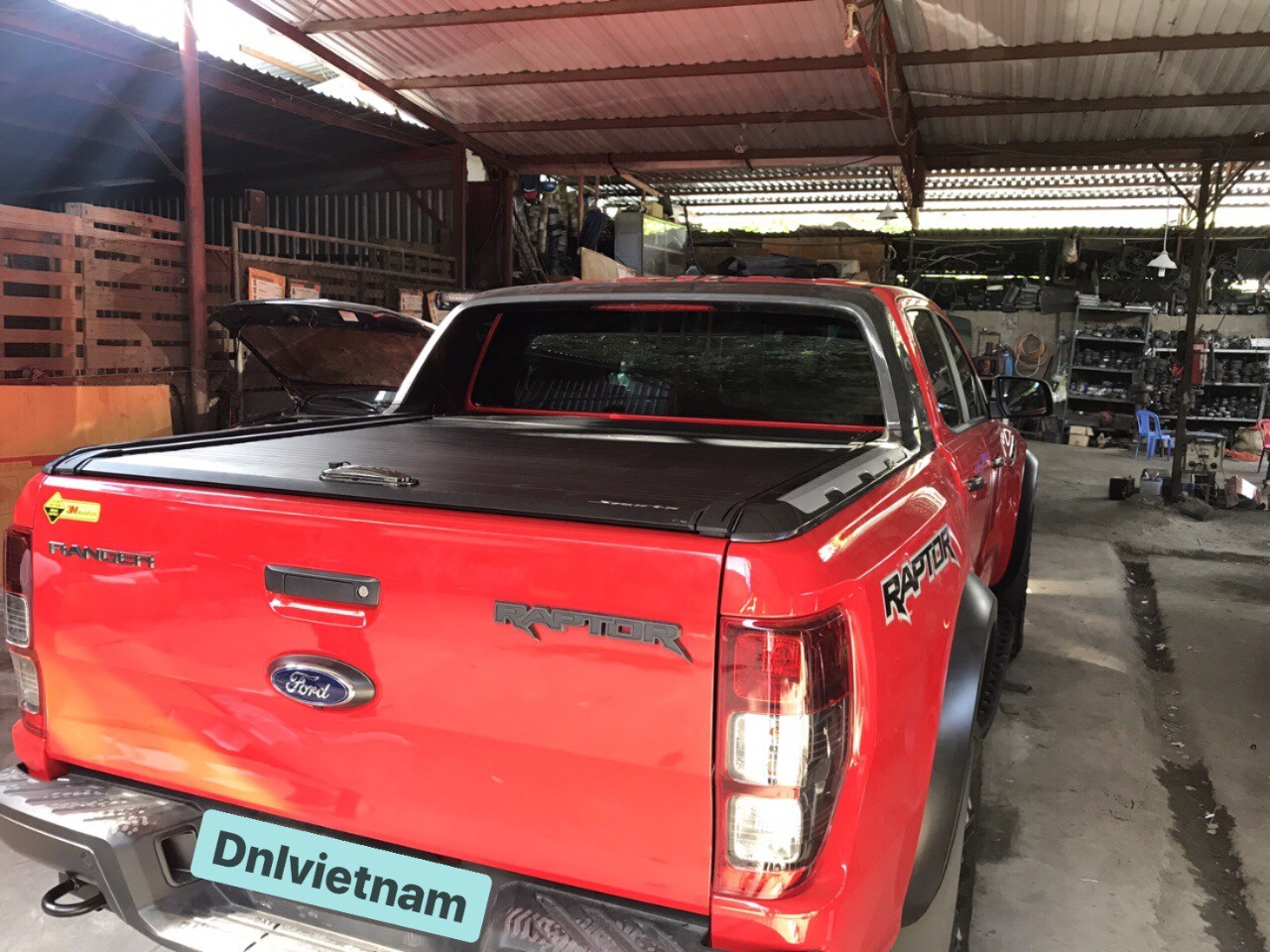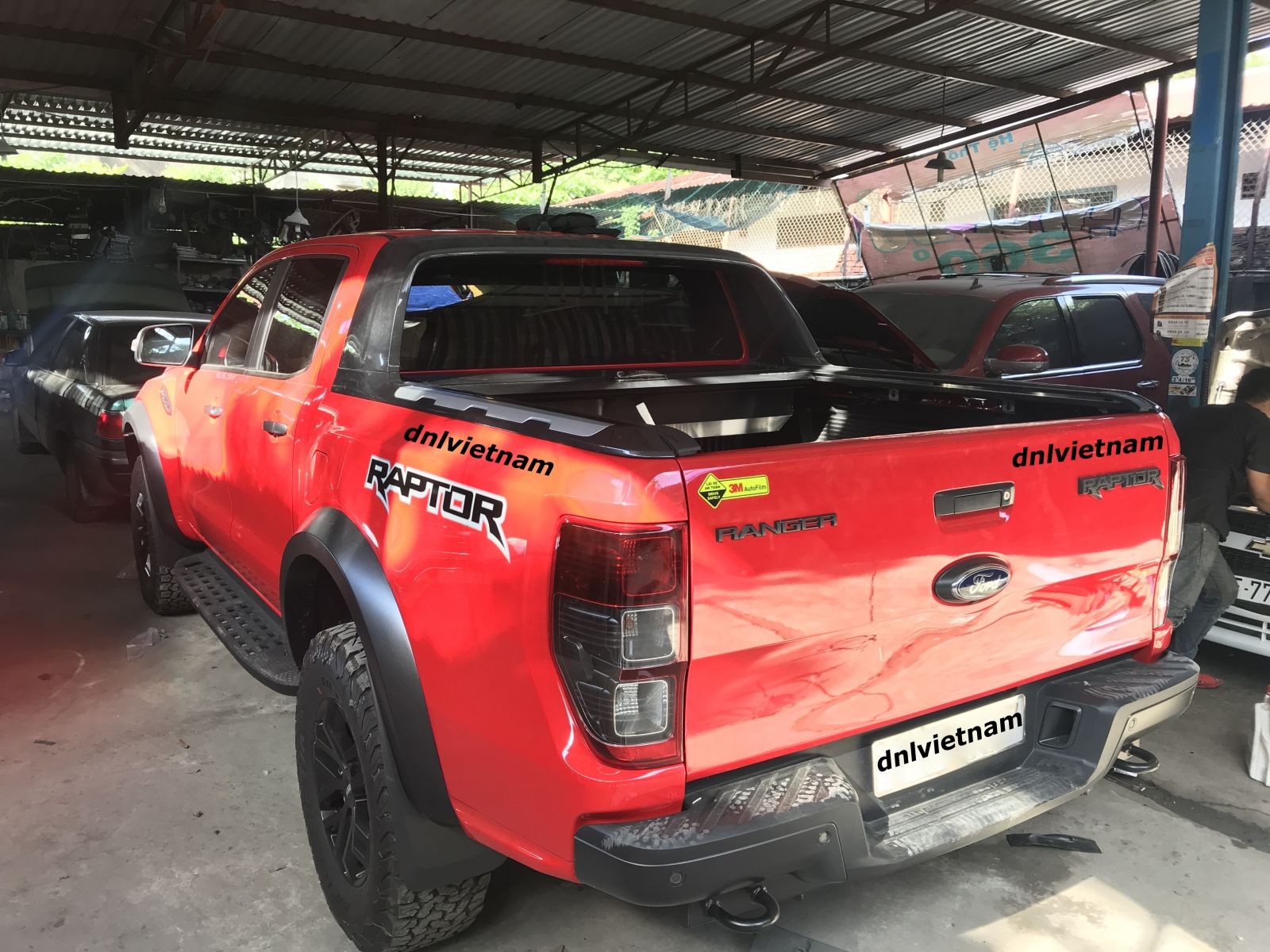News about a potential threefold increase in pickup truck registration tax at the beginning of 2019 ignited the Vietnamese pickup truck market, especially in Hanoi, in late 2018. Car dealerships reported a surge in customers, primarily those seeking to “dodge” the anticipated tax hike. So, what’s happening with the 2017 pickup truck registration tax (actually for 2019), and how should consumers react?
Ministry of Finance Proposes Registration Tax Increase – The Reasons Why
According to the draft amendment and supplement to Decree 140/2016 by the government on registration fees, the Ministry of Finance has proposed a first-time registration fee for pickup trucks equal to 60% of the fee for passenger cars. This means the pickup truck registration tax, currently at 2% in Hanoi and other provinces, could jump to 6% – even 9% depending on the locality (since passenger car registration tax is typically 10% or 15% depending on the region, pickup trucks would be 60% of that). This increase is equivalent to 3-4.5 times the current rate.
.JPG)
Explaining the rationale behind this controversial tax increase proposal, the Ministry of Finance argues that pickup trucks currently enjoy many privileges similar to passenger cars. Pickup trucks can carry both passengers and goods, are allowed to travel in car lanes, and are subject to the same road traffic signal system. Therefore, increasing the first-time registration tax is seen as a measure to ensure fairness between pickup trucks and passenger cars, while also boosting state budget revenue.
Another reason cited by the Ministry of Finance is the rapid growth in the number of imported pickup trucks. Statistics show that the import growth rate of pickup trucks in 2017 was 8.7 times higher than in 2012. Among these, pickup trucks with a cargo carrying capacity of less than 1,500kg and 5 seats or fewer accounted for the majority (approximately 99.8%) of imported pickup trucks. This indicates that the demand for pickup trucks in Vietnam is increasing, and adjusting tax policies is considered appropriate to the current situation.
Prior to this, in April 2017, the Ministry of Industry and Trade also recorded feedback from domestic car manufacturers and assemblers regarding the inadequacies in the current tax policy for pickup trucks. These businesses argued that special consumption tax, import tax, and registration fees for pickup trucks were not fair compared to passenger cars with the same engine displacement or number of seats.
Hanoi Residents Eager to Buy Cars to Avoid Tax – Market Fluctuations
Over the past 3 years, pickup trucks have become increasingly popular in Vietnam due to their versatility and convenience. Compared to SUVs, pickup trucks are often more affordable, more fuel-efficient (due to diesel engines), and still effectively meet the needs of family travel and cargo transportation.
 Chevrolet Colorado pickup truck, a popular choice in Vietnam.
Chevrolet Colorado pickup truck, a popular choice in Vietnam.
Currently, the Ford Ranger remains the best-selling pickup truck model in the market. It is followed by brands such as Chevrolet Colorado, Toyota Hilux, Nissan Navara, and Mitsubishi Triton. Despite having the highest listed price in the segment, the Ford Ranger still wins the favor of a large number of Vietnamese consumers. In the first 10 months of 2018, Ford Vietnam sold more than 5,000 Ranger units.
According to Ms. Vy, a sales representative at a Ford dealership in Ho Chi Minh City (information still relevant for the Hanoi market), dealerships are actively encouraging customers to buy Ford Rangers as soon as possible. “Around January or February 2019, the registration tax could increase from 2% to 6%. Buying a car at this time can save customers a significant amount of money,” Ms. Vy said.
For example, with the Ford Ranger Wildtrak 2.0L AT 4X4 model priced at VND 853 million, the current 2% registration tax is only about VND 17 million. If the tax increases to 6%, customers will have to pay an additional VND 51 million for this tax. In addition, vehicle registration plate fees are also likely to be adjusted upwards, further increasing the cost burden for car buyers.
Mr. Tam, head of sales at a Chevrolet dealership in Ho Chi Minh City, also stated that since the beginning of November 2018, the number of customers interested in and buying pickup trucks has increased significantly. “In previous months, the dealership sold about 30-40 pickup trucks per month, but in just the first half of November, the number of cars sold was almost equal to this figure,” Mr. Tam shared. However, he also expressed concern that the demand for pickup trucks may decline after the registration tax officially increases. “People who need to transport heavy goods may switch to specialized trucks with a registration tax that remains at 2%. Those who do not need to carry too much cargo may choose passenger cars with lower prices,” Mr. Tam analyzed.
Expert Opinion: Careful Consideration of Tax Policy is Needed
Mr. Vo Quoc Binh, Director of M-Auto Company, commented on the proposed increase in pickup truck registration tax, stating that it could create unfairness. Although pickup trucks enjoy the benefit of traffic circulation similar to passenger cars, they have a lifespan of only 25 years, while passenger cars with fewer than 9 seats have no lifespan limit. “If the tax is increased to create fairness, then the regulation on the lifespan of pickup trucks should also be considered for removal,” Mr. Binh suggested.
 Ford Ranger Raptor 2019 pickup truck, a high-performance and sporty model.
Ford Ranger Raptor 2019 pickup truck, a high-performance and sporty model.
Increasing the registration tax not only increases the direct cost for pickup truck buyers, but may also lead to price adjustments for other car models in the same engine displacement and price segment. This could affect the entire car market, and ultimately consumers will bear the disadvantage.
Conclusion
The news about the 2017 pickup truck registration tax increase (for 2019) has created a wave of rushing to buy cars early in the market. However, consumers need to carefully consider their usage needs and financial capabilities before deciding to buy a car at this time. Tax policies need to be considered comprehensively to ensure fairness and harmonize the interests of the state, businesses, and consumers.